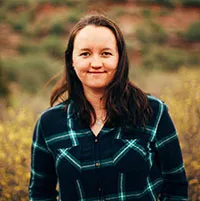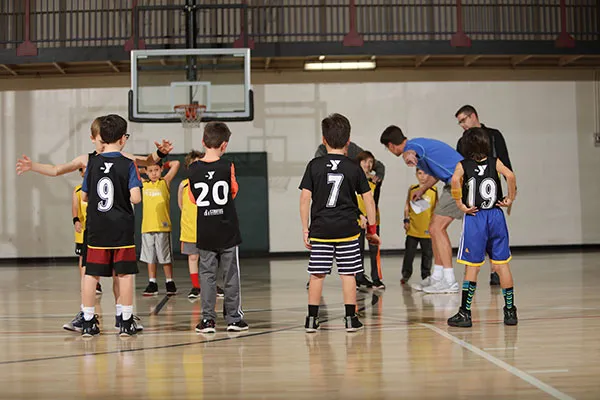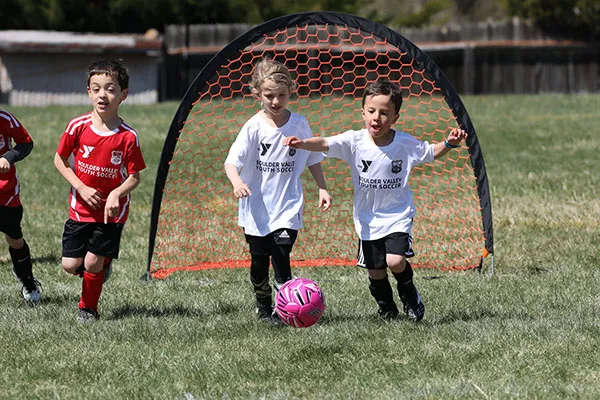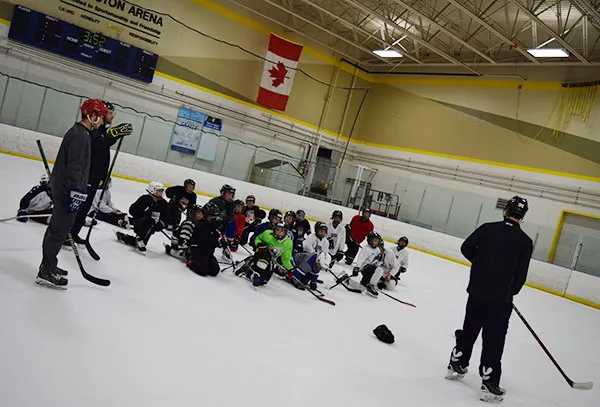Tutus, Touchdowns & Teamwork: A Conversation About The Y Way to Play
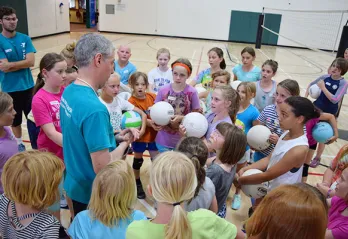
The YMCA of Boulder Valley Sports Department is prepping for the fall sports season (really, the Cadillac of sports seasons), and many parents may notice a re-energized focus on the Y Way to Play.
“What’s the Y Way to Play?” you ask.
Well, it’s kind of a big deal around here. It’s our mantra, and it guides everything we do in our sports and ice programs.
To help parents understand the Y Way to Play better, we sat down with Eliza Bryant, the YMCA of Boulder Valley’s Sports Senior Program Director, to talk with her about YMCA Youth Sports, the philosophy, parents, how she makes programs fun and tutus.
Yes, tutus.
How would you describe the Y Way to Play to a parent who is new to YMCA Sports?
Eliza Bryant: It’s a philosophy that informs how we approach youth sports. We don’t just look at how good a team is or how good a player gets over the course of the season. It’s really about developing our kids all around — not just as athletes, but as people.
We stress fun and progressive competition in a way that is unique to the Y. All of our coaches are required to be familiar with the philosophy and to coach in a way that is representative of how we want their kids’ experience to be.
One of the pillars of the Y Way to Play is progress competition. What does that look like for YMCA of Boulder Valley athletes and their parents?
EB: We serve kids from 3 years old to 8th grade. Our rules, expectations and format all grow with your kiddo. When they are just starting out, kids learn to follow rules and follow the coach. They learn hand-eye coordination with very little focus on competition. It’s not about winning or losing. It’s about being on a team and learning that sports are fun.
Just like within YMCA Youth Basketball: As they move through the levels, rules are progressively more enforced by refs and officials, and when they get older, we do make it more competitive, so they are learning how to lose and how to be a good sport no matter how their team does.
And then when they get into 7th or 8th grade, we are preparing them for high school athletics and club sports.
Basically, you are meeting them where they are?
EB: Definitely. And I think it’s important for parents to understand that their kids don’t have to play competitive sports to be successful at the next level. I only played Y basketball, and then I went on to play on my high school team. From my own experience, it’s not always better to put them in a competitive environment.
And the Y is a good fit too for kids who are not super serious about a sport. It’s great that some kids play with us for a couple years and then go on to a competitive team. But a lot of our kids play three or four sports, and we try to meet that level of commitment and time on the court or field.
Speaking of which, there’s a lot of talk these days about how specialization can be a negative for some young people. There is something to be said for playing a bunch of sports and learning to be an all-around athlete, right?
EB: Yes, and I think it’s hard for kids to know — before they reach middle school or high school — what their sport will be or what their passion will be. What we see in our middle school sports is a lot of kids who do a ton of different activities, or they who use Y sports as a continuation of their school season just to stay active.
We even get kids who play competitive soccer, but they play Y basketball in the winter to stay active and to play together as a team.
How is the Y Way to Play different from philosophies of other youth sports organizations?
EB: The character development and the focus on sportsmanship are the biggest pieces. Those really set us apart. We frame their development as an athlete in the context of them developing as a person, as a kid. Learning to share and making new friends, it’s OK to be on a team with people you don’t know because by the end of the season you will all be friends.
Sportsmanship is written into our clinic curriculum. It’s a big focus before and after games as well. Our staff are invested in kids having a positive experience. Plus, we have expectations of sportsmanship for their coaches and parents as well.
But how do you balance the sportsmanship and the character stuff with fun and developing skills?
EB: Well, the kids don’t realize it’s happening. They don’t realize they are learning to be a good person when they are taking turns during practice. We don’t stop the game and say, “Now we need to talk about sportsmanship.” Instead, it’s, “Hey, make sure we all shake hands at the end of the game.” It’s embedded in everything we do and how our staff behave on the court and how we talk to parents and coaches and how we instruct our coaches to act during practice time.
Kids are inherently good sports, most of the time. Of course they all like to win (she laughs). They will all tell you the score at the end of the game — even if they are in a program where we don’t actually keep score. But they don’t come to us thinking they are better than other people or their team is better. It’s pretty easy to foster their growth and reinforce the positive things they see and do in practice or game.
Let’s talk about parents. There have been national news reports recently about how parents are becoming more aggressive or even violent during youth sporting events. That’s not how we roll at the Y. So what are our expectations of parents? And what is the benefit of extending the Y Way to Play to our parents?
EB: This will be the first season that we roll out the Parents Pledge of the Y Way to Play. I think it helps to reinforce everything we are doing with the kids in the limited time we have with them. We don’t go home with them. We are not in the car on the ride home after the game. We are not at the dinner table after practice.
Parents have such a key role in helping their kids grow up. That’s obvious. Sharing our philosophy with them gives them the tools to support their child as they learn to be an athlete. That’s something you have to learn. Skills, attitude, work ethic. All of it. It’s not just how to shoot a basketball. That’s not the only thing that makes you a basketball player. To help kids become basketball players, we need parents to help reinforce the mental and emotional skills they are learning on the court or field.
What part of that parent pledge would you want parents to focus on?
EB: The encouragement piece. I would love to see parents really supporting their players — regardless of what their performance is during any given game or practice. Understanding that it’s bigger than one day or one game.
It’s important for parents to understand the influence they do have on their athletes. I grew up in a family where one of us played competitive sports and one of us didn’t. It mattered how our parents talked to us after the game. We judged ourselves on their reaction. They were our first role models. If our players don’t see at home the same behavior we are modeling on the court, it can be hard to drive those lessons home.
Parents are key to helping us teach kids that everyone comes to the sport with a different set of skills and a different set of abilities. Being on a team doesn’t mean being the best at everything. We get a lot of kids in 2nd or 3rd grade who want to be the next Kobe Bryant or Lebron James, but there are five players on a basketball court, and they are all just as important.
There is so much that can be learned about life through sports. Learning that you treat everyone with respect and dignity no matter how well they can shoot a free throw is just the beginning.
EB: Really it is just learning that everyone brings something different to the team. These are high-level concepts, that kids probably wouldn’t understand. But through sports, they learn that some kids are fast, some kids shoot well, some kids pass well. And that’s OK.
How present has the Y Way to Play been in YMCA Youth Sports in the past? And now?
EB: It’s always been a part of what we do, but I don’t think families have known about it. Going into our fall seasons, families will see a lot more of it. There will be more verbiage. There will be more visuals. So the expectations and the philosophy will be out there.
But it’s always been there in our programs. I grew up playing sports here. I learned all this stuff. It’s key to how the Y across the nation teaches sports to children. It’s in our ice programs and summer camps as well.
Is there a season you like the most?
EB: Summer. It’s just more laid back. The kids put less pressure on themselves, and they seem to have more fun.
Do you find that our kids feel the pressure of competition in our sports?
EB: I think it’s a healthy balance right now. You will always have the kiddos who take it more serious than others. You will have teams that show up in tutus, and you will have teams that show up in warm-ups.
Seriously? Do we really have teams that show up in tutus?
EB: Oh yeah! Soccer teams have shown up in tutus. I think that’s the best part of Y sports. We build our leagues in a way that supports kids where they are at.
In YMCA Black and Gold Basketball, that’s where you see the most competition. Especially in March, when we have our tournament. But the kids love it, and they are serious about it. We have really good coaches and parent involvement at that time as well. Everyone is having a lot of fun and getting into it.
Yes, let’s talk about fun. It’s an often-used word here at the Y. When you are developing programs or managing programs, how important is fun really?
EB: It’s the first of the five pillars of the Y Way to Play. It’s first because it’s most important. These are little kids. They are learning how to be on a team and what camaraderie is supposed to feel like. Sometimes picking a team name is the most important part of it. I coached a 2nd grade team once, and they were the Fuzzy Hawks. And, yes, that was the highlight of their season.
Having fun being so central to our mission gives us the opportunity to step back and realize that it’s more about them having a smile on their face than it is about them making a basket.
And our staff get to have fun. You see refs on NBA courts are not having fun. But our staff get to goof around with kids and get to see them grow throughout the season. They get to play games with them at clinics. They get to be involved in a different way than they do in other programs.
There was a little boy on a team last summer, and he had never played before. And by the last game of the season, everyone in the gym was cheering for him to make his first basket. That’s just the sort of environment we want to nurture. It’s who we are, and it starts with making sports fun.
Anything else you want parents or players to know about Y Youth Sports?
EB: That we love sports just as much as they do. Our staff is here because we love sports, and we want their kids to have a great experience.
The YMCA of Boulder Valley is now registering for fall sports in Longmont, Boulder, Lafayette, Superior, Louisville and beyond, including basketball, soccer, volleyball, lacrosse, golf, hockey, learn to skate and more. Find your sport here.

